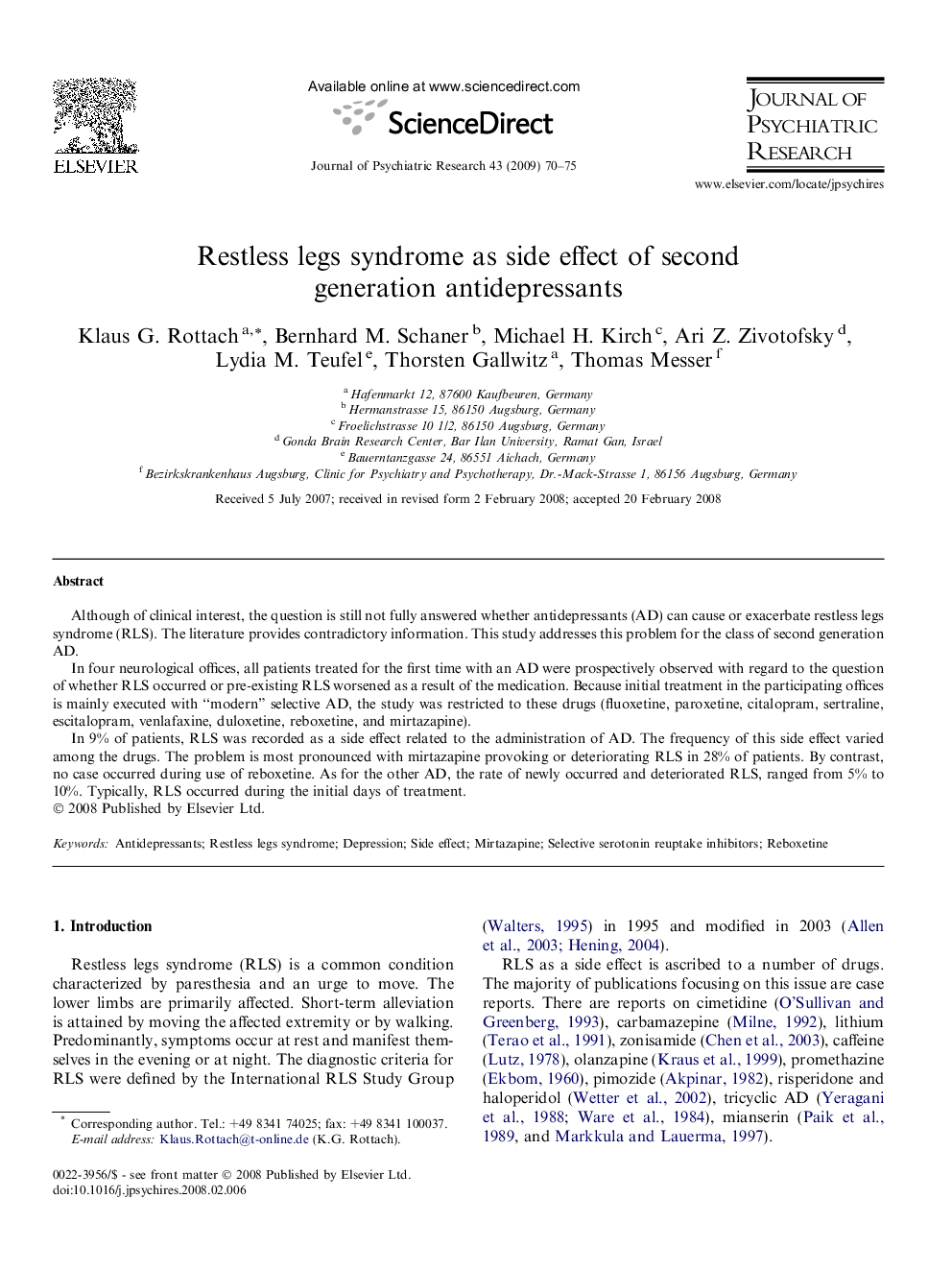| Article ID | Journal | Published Year | Pages | File Type |
|---|---|---|---|---|
| 328013 | Journal of Psychiatric Research | 2008 | 6 Pages |
Although of clinical interest, the question is still not fully answered whether antidepressants (AD) can cause or exacerbate restless legs syndrome (RLS). The literature provides contradictory information. This study addresses this problem for the class of second generation AD.In four neurological offices, all patients treated for the first time with an AD were prospectively observed with regard to the question of whether RLS occurred or pre-existing RLS worsened as a result of the medication. Because initial treatment in the participating offices is mainly executed with “modern” selective AD, the study was restricted to these drugs (fluoxetine, paroxetine, citalopram, sertraline, escitalopram, venlafaxine, duloxetine, reboxetine, and mirtazapine).In 9% of patients, RLS was recorded as a side effect related to the administration of AD. The frequency of this side effect varied among the drugs. The problem is most pronounced with mirtazapine provoking or deteriorating RLS in 28% of patients. By contrast, no case occurred during use of reboxetine. As for the other AD, the rate of newly occurred and deteriorated RLS, ranged from 5% to 10%. Typically, RLS occurred during the initial days of treatment.
